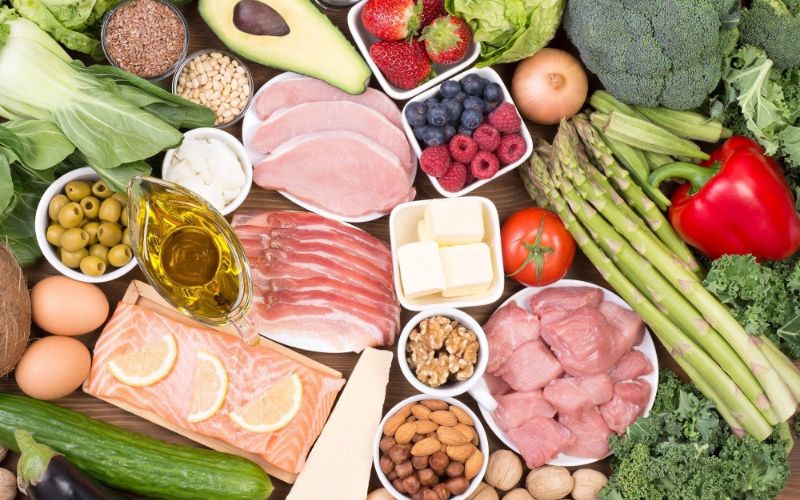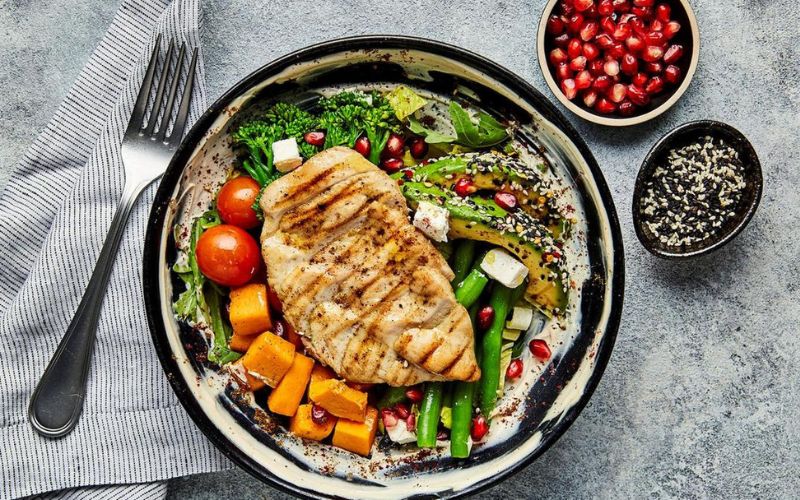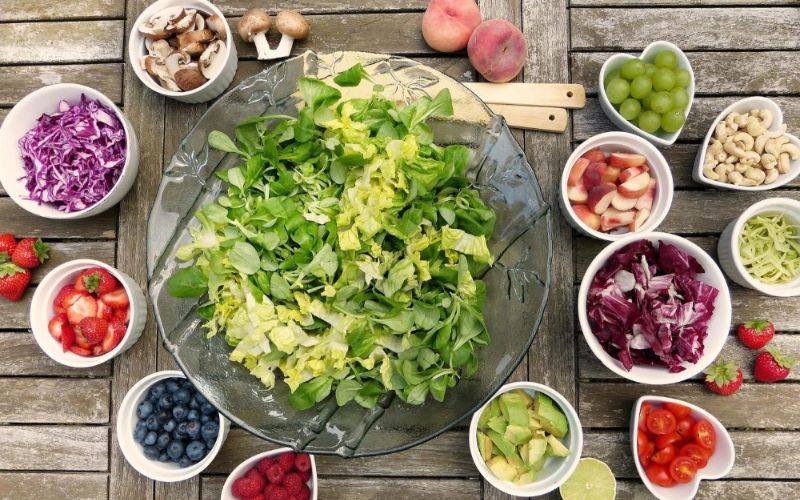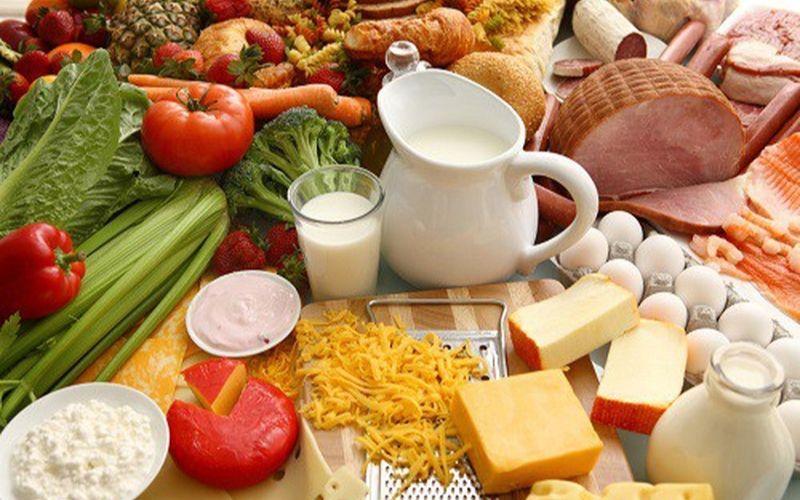The Ornish diet is a powerful approach to nutrition that not only prevents chronic diseases but also promotes overall well-being. Discover the Ornish diet and its incredible health benefits!
1 What is the Ornish Diet?
The Ornish diet, also known as the lacto-ovo vegetarian diet (vegetarian diet that includes eggs and dairy), is a plant-based approach to eating developed by Dr. Dean Ornish. This diet emphasizes whole foods of plant origin while excluding others.
By activating health-promoting genes and reversing cellular aging, you can halt the progression of chronic diseases like heart disease and diabetes while also achieving and maintaining a healthy weight.
 What is the Ornish Diet?
What is the Ornish Diet?
2 Benefits of the Ornish Diet
Weight Loss
The Ornish diet focuses on nutrient-dense foods like fruits, vegetables, and plant-based sources of protein and fats. These foods provide essential nutrients while also supporting your weight loss journey.
Research shows that a vegetarian diet can effectively promote weight loss. In a study involving 76 participants, an average weight loss of 5 pounds (2.2 kg) was achieved after following the Ornish diet for a year.
Similarly, in a study with 20 participants, an average weight loss of 7.5 pounds (3.3 kg) was observed after a year of adhering to the Ornish diet.
Another study involving 74 individuals with type 2 diabetes showed superior weight loss results compared to a conventional low-fat diet over a period of six months.
 Weight Loss Benefits
Weight Loss Benefits
Disease Prevention
Several studies indicate that the Ornish diet may help prevent chronic diseases. Following this vegetarian plan can reduce the risk of heart disease, diabetes, and obesity.
Additionally, the Ornish diet is associated with a reduced risk of certain cancers, including breast, stomach, prostate, and colorectal cancers. It also helps lower levels of triglycerides, inflammation, total cholesterol, and LDL (“bad”) cholesterol, all of which are risk factors for heart disease.
 Disease Prevention Benefits
Disease Prevention Benefits
3 Limitations of the Ornish Diet
While the Ornish diet offers numerous benefits, it also has some drawbacks:
The Ornish diet provides less than 10% of daily calories from healthy fats. These healthy fats are important for combating heart disease, reducing inflammation, supporting brain function, and ensuring healthy development.
However, 10% is not sufficient. According to nutritional experts, an ideal daily intake should provide 20-35% of calories from healthy fats to optimize health.
 Limitations of the Ornish Diet
Limitations of the Ornish Diet
Vegetarian diets are typically lower in essential nutrients like protein, calcium, omega-3 fatty acids, vitamin B12, and vitamin D. When following the Ornish diet, it’s important to include nutrient-rich fruits, vegetables, whole grains, and legumes, as well as consider taking supplements to ensure adequate nutrient intake.
Increased risk of nutritional deficiencies (due to the exclusion of certain nutrients found in animal-based and dairy products).
 Nutritional Deficiencies Risk
Nutritional Deficiencies Risk
4 How to Follow the Ornish Diet
With the Ornish diet, you won’t need to count calories or track specific nutrient intakes.
- The main components of this diet include fruits, vegetables, whole grains, and dishes made from soybeans.
- The next important element is including healthy fats found in whole foods like whole grains and legumes. Ensure that you’re getting at least 10% of your daily calories from these sources.
- Egg whites and up to two servings of non-fat dairy products, such as yogurt and cheese, can also be included.
 How to Follow the Ornish Diet
How to Follow the Ornish Diet
Limit your intake of alcoholic beverages, refined carbs, sweets, high-fat plant-based foods, and packaged low-fat foods.
When it comes to nuts and seeds, consume them in limited quantities. Additionally, the Ornish diet excludes meat, fish, and poultry.
Combine your diet with at least 30 minutes of daily exercise to maximize the benefits of the Ornish diet.
 Ornish Diet Guidelines
Ornish Diet Guidelines
5 Foods to Eat and Avoid on the Ornish Diet
- Eat: Focus on including fruits, vegetables, whole grains, legumes, plant-based proteins (tofu, egg whites), and herbs and spices.
- Limit: Consume low-fat foods, refined carbs (2 servings or less per day), nuts and seeds (3 grams or less per small serving per day), caffeinated drinks, dairy products (2 servings or less per day), vegetable oils, avocados (max 1 serving per day), and processed foods like fast food in moderation.
- Avoid: Meat, poultry, fish, and egg yolks are excluded from the Ornish diet.
 Foods to Eat and Avoid on the Ornish Diet
Foods to Eat and Avoid on the Ornish Diet
We’ve shared valuable insights into the Ornish diet, which not only promotes health but also helps fight chronic diseases. The Ornish diet’s diverse food combinations also make it a tasty and enjoyable way to eat. Share this healthy lifestyle choice with your friends and family!
Source: Thethaothegioi.vn





































